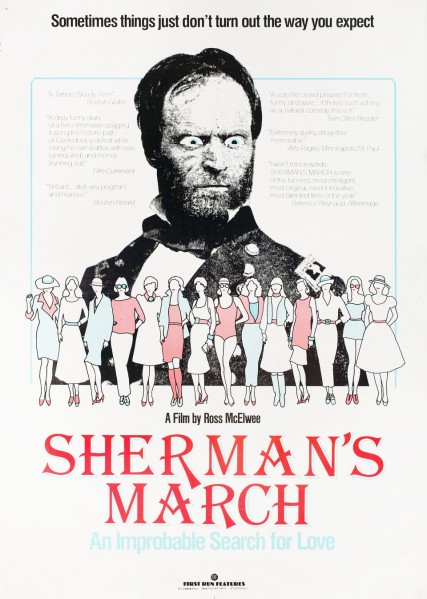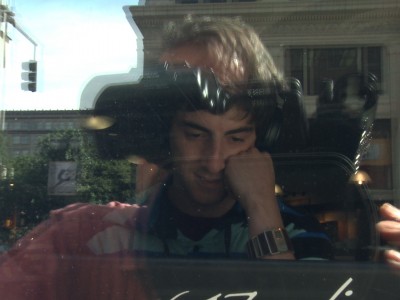
Ross McElwee dismisses the notion of personal documentary, a descriptor that too neatly identifies his style. Though the term 'personal' might appeal to his ontological beliefs, his films are never 'purely' or systematically autobiographical: each looks to other people for its content. Like all vérité filmmakers, he relies heavily on serendipitous events – what Dziga Vertov called 'life caught unawares.' His method can be more aptly described as deflective than reflexive. He enters the frame as a person primarily to neuter his presence as a filmmaker. While his films might include a large amount of autobiographical content, McElwee can never be said to be the subject of his own films. Having begun his creative life as a writer, studying under John Hawkes, he accepts William Faulkner’s maxim that '[i]t is himself that every southerner writes about.' However, McElwee’s vision, like his ironic posture, is always double. He finds in his own story the key to unmasking deeper social truths about racial inequity, Southern heritage and white masculinity.
Ross McElwee (b. 1947) has been teaching filmmaking at Harvard University since 1986 where he is a professor in the Department of Art, Film, and Visual Studies. With a focus on the personal documentary, McElwee has made ten feature-length documentaries as well as a number of shorter films. His formative influences include MIT professors Ed Pincus and Ricky Leacock and fellow verité filmmakers Jeff Kreines and Joel DeMott—all trailblazers in the brave new small-gauge documentary movement of the 60s and 70s. His thesis film at MIT Charleen or How Long Has This Been Going On (1980) is an observational portrait of his friend and former teacher and the South McElwee had called home before relocating to New England. He returned even closer to home for Backyard (1984), his first autobiographical work, centered largely on his relationships with the remaining members of his Southern family. By the time he made what would be his most famous and most epic work, Sherman's March: A Meditation on the Possibility of Romantic Love In the South During an Era of Nuclear Weapons Proliferation (1986), McElwee had taken the burgeoning genre of diary film to hilarious, self-effacing lengths. The filmmaker’s rambling odyssey attempts to follow the Civil War general’s southern route while looking for a love “that will last for more than two weeks.” The unpredictable, introspective, entertaining result earned him endless accolades among critics and general audiences alike. In 2000, Sherman’s March was selected for preservation by the Library of Congress National Film Registry as a “historically significant American motion picture.”
In addition to Something to Do With the Wall (1991) made in Berlin with his wife at the time, Marilyn Levine, he continued to document various aspects of his family life and the greater or smaller events colliding with it in films such as Time Indefinite (1993), Six O'Clock News (1996) and In Paraguay (2008). The complexity of his Southern roots—and specifically how they are entwined with those of the tobacco plant—resurfaced in Bright Leaves (2003) which premiered at the 2003 Cannes Film Festival’s Directors’ Fortnight and was nominated for Best Documentary by both the Director’s Guild of America and the Writer’s Guild of America. His most recent film, Photographic Memory (2011) revisits a love affair he had in his early twenties, the same age as the son with whom he attempts to reconnect. Here, as elsewhere in McElwee’s particularly personal cinema of self-discovery, he consults with the past in order to understand the present, using his camera as mediator, witness and mirror.
About the Collection
The collection contains the film prints, negatives and soundtrack materials for most of his major works. A list of titles available in this collection can be found here.
McElwee's films are distributed by First Run Features.
Additional Resources
Avant-Doc: Intersections of Documentary and Avant-Garde Cinema by Scott MacDonald (Oxford University Press, 2014)
American Ethnographic Film and Personal Documentary – The Cambridge Turn by Scott MacDonald (University of California Press, 2013)
"Hiding Behind the Camera," by Jessica Weisberg, The New Yorker, February 2013
"Camera Angling to Reconcile Then and Now" by John Anderson, New York Times, October 2012
"Making Sense of Ross McElwee and 'Sherman's March,'" by Mark Feeney, Boston Globe, February 2012











